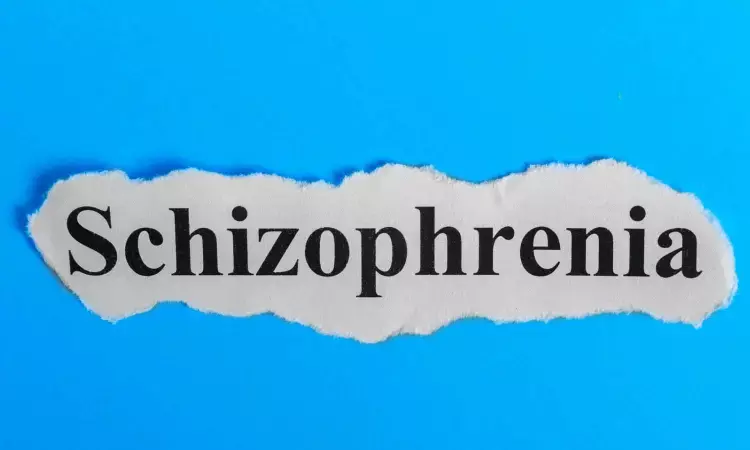- Home
- Medical news & Guidelines
- Anesthesiology
- Cardiology and CTVS
- Critical Care
- Dentistry
- Dermatology
- Diabetes and Endocrinology
- ENT
- Gastroenterology
- Medicine
- Nephrology
- Neurology
- Obstretics-Gynaecology
- Oncology
- Ophthalmology
- Orthopaedics
- Pediatrics-Neonatology
- Psychiatry
- Pulmonology
- Radiology
- Surgery
- Urology
- Laboratory Medicine
- Diet
- Nursing
- Paramedical
- Physiotherapy
- Health news
- Fact Check
- Bone Health Fact Check
- Brain Health Fact Check
- Cancer Related Fact Check
- Child Care Fact Check
- Dental and oral health fact check
- Diabetes and metabolic health fact check
- Diet and Nutrition Fact Check
- Eye and ENT Care Fact Check
- Fitness fact check
- Gut health fact check
- Heart health fact check
- Kidney health fact check
- Medical education fact check
- Men's health fact check
- Respiratory fact check
- Skin and hair care fact check
- Vaccine and Immunization fact check
- Women's health fact check
- AYUSH
- State News
- Andaman and Nicobar Islands
- Andhra Pradesh
- Arunachal Pradesh
- Assam
- Bihar
- Chandigarh
- Chattisgarh
- Dadra and Nagar Haveli
- Daman and Diu
- Delhi
- Goa
- Gujarat
- Haryana
- Himachal Pradesh
- Jammu & Kashmir
- Jharkhand
- Karnataka
- Kerala
- Ladakh
- Lakshadweep
- Madhya Pradesh
- Maharashtra
- Manipur
- Meghalaya
- Mizoram
- Nagaland
- Odisha
- Puducherry
- Punjab
- Rajasthan
- Sikkim
- Tamil Nadu
- Telangana
- Tripura
- Uttar Pradesh
- Uttrakhand
- West Bengal
- Medical Education
- Industry
High-dose olanzapine safe against treatment-resistant schizophrenia

A new research by Louisa Gannon and colleagues offered preliminary support for the application of high-dose olanzapine in treatment-resistant schizophrenia (TRS), albeit the evidence base is limited. The findings of this study were published in Therapeutic Advances in Psychopharmacology.
Around 30% of persons with schizophrenia have treatment-resistant schizophrenia. Clozapine is the gold standard treatment for TRS, however it is not always appropriate, with some people experiencing adverse effects or being unable to participate in blood monitoring. Given the severe impact TRS may have on persons who suffer from it, different pharmaceutical approaches to treatment are required. As a result, this study was designed to undertake a literature evaluation on the effectiveness and tolerance of high-dose olanzapine (>20 mg daily) in adults with TRS.
Researchers examined PubMed/MEDLINE, Scopus, and Google Scholar for eligible studies published before April 2022. The inclusion criteria were satisfied by ten studies [five randomized controlled trials (RCTs), one randomized crossover trial, and four open label studies]. Data were collected for two primary objectives (efficacy and tolerability).
The key findings of this study were:
1. High-dose olanzapine was non-inferior to conventional therapy in four RCTs, three of which employed clozapine as the comparison.
2. In a double-blind crossover experiment, clozapine outperformed high-dose olanzapine.
3. Open-label trials found preliminary evidence to support the use of high-dose olanzapine.
4. In two RCTs, it was tolerated better than clozapine and chlorpromazine, and it was usually well tolerated in open-label trials.
This research demonstrates that when compared to other regularly used first- and second-generation antipsychotics, such as haloperidol and risperidone, high-dose olanzapine is superior for TRS. The findings are positive in contrast to clozapine for the use of high-dose olanzapine where clozapine administration is difficult, but bigger, better planned trials are needed to examine the comparative efficacy of both therapies. When clozapine is not contraindicated, there is insufficient evidence to support high-dose olanzapine equal to clozapine. Overall, olanzapine at large doses was well tolerated, with no significant adverse effects.
Reference:
Gannon, L., Reynolds, J., Mahon, M., Gaughran, F., & Lally, J. (2023). High-dose olanzapine in treatment-resistant schizophrenia: a systematic review. In Therapeutic Advances in Psychopharmacology (Vol. 13, p. 204512532311687). SAGE Publications. https://doi.org/10.1177/20451253231168788
Neuroscience Masters graduate
Jacinthlyn Sylvia, a Neuroscience Master's graduate from Chennai has worked extensively in deciphering the neurobiology of cognition and motor control in aging. She also has spread-out exposure to Neurosurgery from her Bachelor’s. She is currently involved in active Neuro-Oncology research. She is an upcoming neuroscientist with a fiery passion for writing. Her news cover at Medical Dialogues feature recent discoveries and updates from the healthcare and biomedical research fields. She can be reached at editorial@medicaldialogues.in
Dr Kamal Kant Kohli-MBBS, DTCD- a chest specialist with more than 30 years of practice and a flair for writing clinical articles, Dr Kamal Kant Kohli joined Medical Dialogues as a Chief Editor of Medical News. Besides writing articles, as an editor, he proofreads and verifies all the medical content published on Medical Dialogues including those coming from journals, studies,medical conferences,guidelines etc. Email: drkohli@medicaldialogues.in. Contact no. 011-43720751


